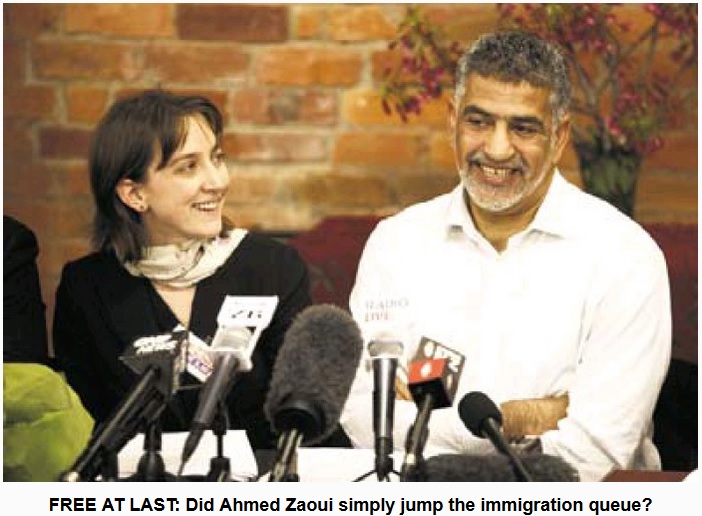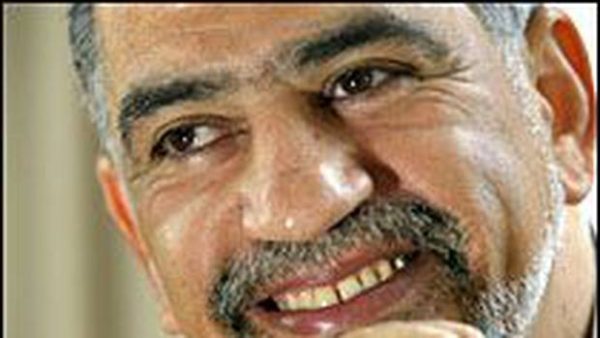
Zaoui was never innocent, he made a deal., which he can easily reneg.
WHEN the chips were down, Ahmed Zaoui sang like a bird to buy his freedom in New Zealand. Zaoui’s decision to offer new information that could be prejudicial to him — presumably about the so-called freedom-fighting networks he belonged to — is a major factor behind why New Zealand’s spooks have lifted the security risk certificate against him.
The Algerian has, in effect, been publicly turned into an intelligence asset on tap for the Security Intelligence Service (SIS) and its offshore counterparts like the CIA through an obligation to seek permission from the SIS before he meets with any contacts from a list of associates whose names were blacked out in the public version of the deal Zaoui swore on the Koran with SIS director Warren Tucker.
If any of his associates get in touch with Zaoui, he has to tell the SIS the exact nature of such contacts, whether they are social or political and whether they might prompt any security concerns. He also has to fess up if other intelligence agencies seek to make contact with him over his knowledge of international terrorist networks.
Tucker’s decision to make a deal with Zaoui is a pragmatic one. It will no doubt have been endorsed by Prime Minister Helen Clark who is also the SIS Minister, even though Clark maintains she has stood aside from Tucker’s decision-making process.
Neither party would have wanted the fullscale riots that would have incurred if Zaoui — who has been accorded martyr status by some media — was forcibly deported from New Zealand.
Neither would they have wanted the SIS to be brought into public disrepute if SIS Inspector-General Paul Neazor’s upcoming report cast doubt over the intelligence services processes.
Nor would they have wanted the Government — and the SIS — to be challenged in the Supreme Court with its decidedly liberal bent. The upshot is that a rather dirty little deal has been forged.
Zaoui’s celebrity status, rather like the furore over the unfortunate David Bain, has stymied rational debate over the merits of his claim to refugee status.
Rather unfortunately he has been canonised in his own lifetime by the Labour Party’s rank-and-file, many of whom are still buried in the peacenik era. Put that to one side.
The important takeout from Tucker’s statement is his confirmation that Zaoui was clearly a risk to the security of New Zealand when he arrived here five years ago. The SIS director cites Zaoui’s convictions in France and Belgium for participating in and leading terrorist networks.
He was deported from Switzerland for issuing statements supporting violence in Algeria and attracting extremists and was excluded from entering Britain.
What is extraordinary is Tucker’s admission that after Zaoui’s arrival here seeking refugee status, he continued to have ongoing associations with individuals who had been involved with terrorist networks. This does not amount to a full-scale clearance of Zaoui’s name — far from it.
The fact is that Zaoui entered this country illegally using a bogus South African passport that he flushed down the airplane toilet before seeking refugee status on arrival at Auckland Airport.
It’s never been satisfactorily explained why he had to leave his family — a wife and four boys — behind in Malaysia to seek a new life in New Zealand. Malaysia, a Muslim country, has not kicked out the Zaoui family in the five years since Ahmed Zaoui has been in New Zealand. What is clear is that the Algerian has managed to jump the immigration queue ahead of other potential immigrants rather than follow the appropriate processes.
Tucker notes the SIS has also received classified information that suggests it is Zaoui’s associates, rather than himself, that have been actively involved in providing support to terrorism in Algeria. He says in the meantime Algeria has changed.
Most of those who were involved in terrorism in Algeria have taken advantage of an amnesty and have stopped fighting. The groups with which Zaoui and his colleagues were associated are no longer functioning.
Indeed, this also applied to Zaoui’s political party, the FIS. If this is the case why can’t Zaoui simply go back to Algeria and apply for amnesty himself? One answer to that might be the fact that Zaoui’s SIS disclosures have made the avenue impossible in the short term. But another answer may be that he is on an exceptionally good wicket in New Zealand through conning his way into this decidedly trusting country.


I wouldn’t worry about Ahmed Zaoui, I have bumped into him a couple of times, and know some of the people supporting him. His form of Islam is more like the Aussie Imam Tawhidi, that the Islamic’s hate.
There was a lot of nasty background politics from the French and Algerian government when the current government looked like they were goign to lose the election in 1991. Zaoui would have been in the winning party. Some took to terrorism. Zaoui fled. The Algerians tried to link him to the terrorists,as did the French. There have been a few sham trials in his absence – none truthfully tied him to the terrorists.
I agree. Much of the Zaoui saga is now ancient history. Another point to keep in mind: The Algerian Government, in effect, staged a coup by scrapping the democratic process. And in the ensuing civil war it also committed atrocities. The terrorism wasn’t perpetrated by only one side. If one side copped most of the opprobrium, that was because the Government was supported by France and other Western powers. The West has always been hypocritical in this regard: If a Muslim kills 10 people, that’s “terrorism”; if a Western power (or one of its agents) kills 1000 Muslims, that’s just “foreign policy”. This is actually the main cause of what is known as “radicalization”.